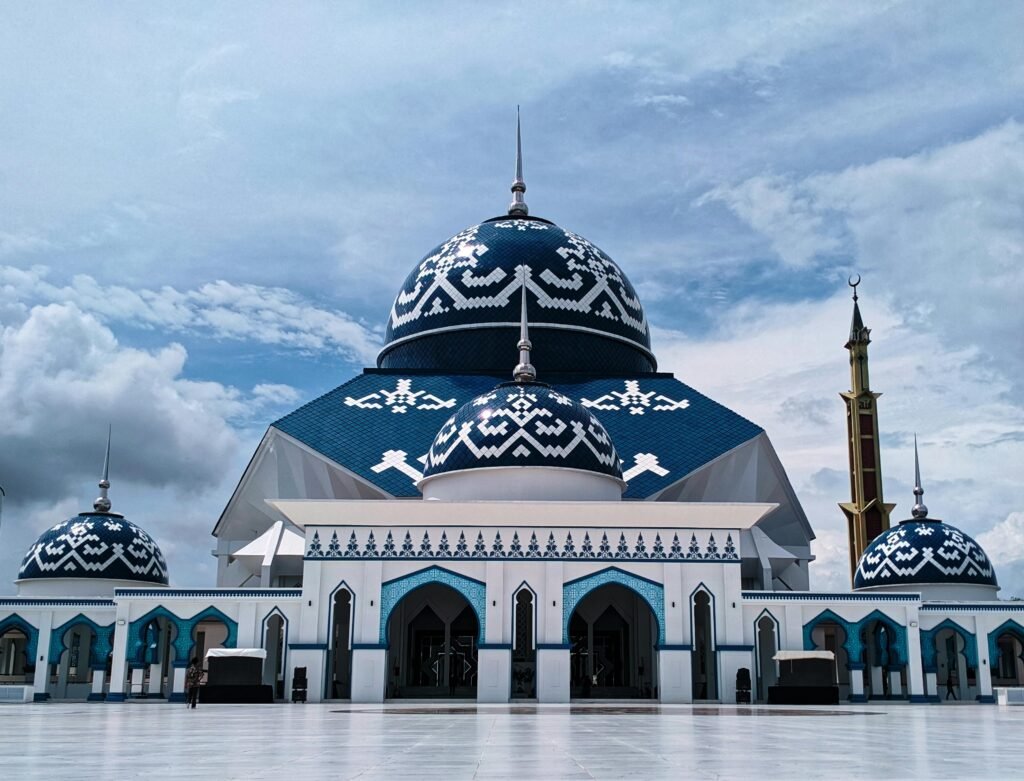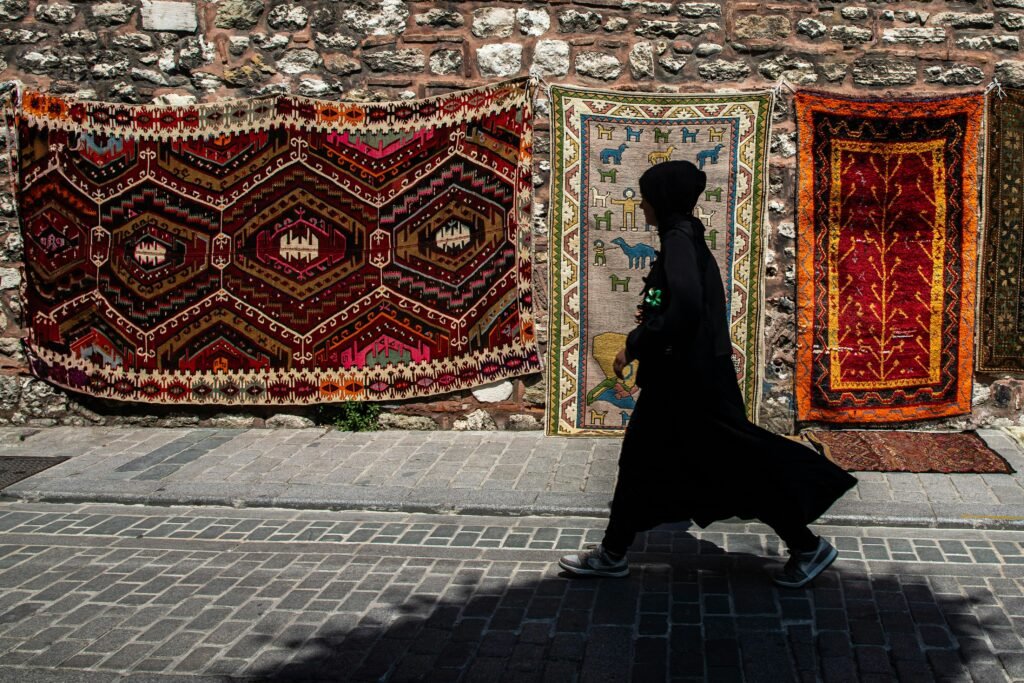Islamic News: Best History of the Golden Age of Islam

In today’s fast-changing world, staying connected with Islamic News helps millions of believers and curious minds understand the vibrant, ongoing story of Islam. However, understanding the roots of Islamic civilization — especially the magnificent Golden Age of Islam — deepens our appreciation for its achievements and spiritual guidance. This blog post explores the rich tapestry of Islamic History, the essence of What Is the Islamic religion, and the cultural and scientific milestones during the Golden Age. It also touches on essential elements like the Islamic Hijri, Islamic New Year, What Is Eid, what is Roza and salah, and vital Islamic Information that every Muslim and seeker should cherish.
What is the Islamic religion?
Islam is a divine and spiritual path founded in the early 7th century CE by the Prophet Muhammad (peace be upon him). The word Islam means “submission” to the will of Allah (God), and it calls for faith, obedience, and living a righteous life. Muslims believe in the oneness of God and that the Prophet Muhammad [S] is the final messenger who brought the Qur’an — the holy scripture that guides believers in every aspect of life.
What is the Islamic religion truly about? It is about inner peace, justice, mercy, and accountability to God. Its followers, called Muslims, commit to the Five Pillars, which shape their daily worship and relationship with others. These pillars include the declaration of faith (Shahada), prayer (Salah), fasting (Roza), almsgiving (Zakat), and pilgrimage to Mecca (Hajj). Each pillar anchors the believer’s spiritual journey and social responsibility.
Islamic History: A Journey Through Time
Understanding Islamic History is essential to grasp the full impact of Islam on civilization and human progress. The history of Islam spans over 1400 years, beginning in the Arabian Peninsula and spreading rapidly across continents. One of the most celebrated eras in Islamic History is the Golden Age of Islam, which heralded a renaissance in knowledge, arts, science, and governance.
The timeline of Islamic History includes the life of Prophet Muhammad, the period of the Rightly Guided Caliphs (Rashidun), followed by the Umayyad and Abbasid caliphates. These phases witnessed the expansion of Islam and remarkable cultural exchanges that shaped societies worldwide.
Islamic Hijri and Islamic New Year
The Islamic Hijri calendar is a lunar calendar that began with the Prophet Muhammad’s migration (Hijra) from Mecca to Medina in 622 CE. This event marks the beginning of the Islamic era and is crucial for Muslims worldwide. The Islamic New Year, or Hijri New Year, also called Muharram, marks the start of the new lunar year and is a time for reflection, renewal, and spiritual commitment.
While not celebrated with large festivities like other holidays, the Islamic New Year is significant because it reminds Muslims of the sacrifices made by the Prophet and his companions in establishing the faith. It is a moment to renew devotion and seek God’s mercy for the coming year.
What Is Eid? The Celebration of Faith
Two major festivals hold immense importance in the Muslim calendar: Eid al-Fitr and Eid al-Adha. So, What Is Eid? It is a day of joy, gratitude, and community.
- Eid al-Fitr celebrates the end of Ramadan, the holy month of fasting, or Roza. It is a day to thank Allah for strength and patience during the month of spiritual purification.
- Eid al-Adha commemorates the Prophet Ibrahim’s willingness to sacrifice his son as an act of obedience to God, symbolizing submission and faith.
Both Eids involve prayers, charity, festive meals, and gathering with family and friends, reinforcing the bonds of community and shared faith.
What is Roza and Salah? Pillars of Devotion
Among the Five Pillars, Roza (fasting) and Salah (prayer) hold special significance in daily Muslim life.
- Roza, observed during Ramadan, teaches self-discipline, empathy for the less fortunate, and spiritual growth. Fasting from dawn till sunset involves abstaining from food, drink, and negative actions, allowing the soul to focus on God.
- Salah is the five-times-daily prayer that connects a Muslim directly to Allah. It is a profound act of worship that punctuates the day with mindfulness, gratitude, and submission.
Together, Roza and Salah embody the spiritual devotion and obedience central to Islam.
The Golden Age of Islam: A Time of Enlightenment
The Golden Age of Islam, roughly spanning the 8th to the 14th centuries, was an era when Islamic civilization reached the peak of intellectual, cultural, and technological advancement. This period is one of the most luminous chapters in Islamic History and remains a source of pride and inspiration in Islamic News coverage today.

Scientific and Philosophical Achievements
During the Golden Age, scholars built upon the knowledge of ancient civilizations, blending it with their own insights. This resulted in groundbreaking progress:
- Mathematics: Al-Khwarizmi’s development of algebra and algorithms revolutionized calculations and problem-solving.
- Medicine: Ibn Sina’s (Avicenna’s) “Canon of Medicine” systematized medical knowledge that influenced both Eastern and Western medicine.
- Astronomy: Muslim astronomers improved tools and models, such as the astrolabe, aiding navigation and calendar accuracy.
- Philosophy: Thinkers like Al-Farabi and Ibn Rushd (Averroes) harmonized Greek philosophy with Islamic theology, promoting reason alongside faith.
These achievements underscore the profound depth of Islamic Information preserved from this period.
Cultural and Artistic Flourishing
The Golden Age also saw an explosion in arts and culture. Islamic calligraphy, architecture, poetry, and literature flourished, reflecting a blend of spiritual devotion and aesthetic excellence. Mosques were built with intricate designs, symbolizing unity and divine beauty. The art of manuscript illumination, music, and storytelling blossomed, leaving an enduring legacy.
Why Is the Golden Age Still Important in Islamic News?
The impact of the Golden Age continues to influence modern Islamic News because it reminds the world of the peaceful and intellectual heritage of Islam. It counters stereotypes by highlighting the faith’s commitment to knowledge, compassion, and justice.
This legacy inspires Muslims to pursue education, scientific innovation, and cultural development today, making the Golden Age a symbol of hope and progress in the modern world.
Modern Reflections on Islamic History and Practices
Today, Muslims around the world celebrate the Islamic Hijri calendar and observe festivals like Eid with deep reverence, connecting past and present. The understanding of what Islamic religion continues to guide millions in their daily lives, while Islamic News outlets bring stories that reflect ongoing contributions to global society.
The principles behind what is Roza and Salah still strengthen faith, discipline, and community ties. Meanwhile, historical insights from the Golden Age fuel new ideas in science, ethics, and governance.
Conclusion: A Living Heritage in Islamic News
The history of Islam, from its foundational beliefs to the brilliance of the Golden Age, remains a living heritage. Islamic News not only shares current events but also honors this rich past — a past full of wisdom, spiritual depth, and unparalleled achievements.
By understanding what the Islamic religion is, appreciating Islamic History, and celebrating traditions like Islamic Hijri, Islamic New Year, Eid, and the pillars of Roza and salah, believers and learners alike strengthen their connection to this timeless faith.
This journey through the Golden Age and beyond reveals Islam as a beacon of light and knowledge, continuously inspiring millions worldwide. Stay connected with Islamic News to keep learning and celebrating this noble tradition.
